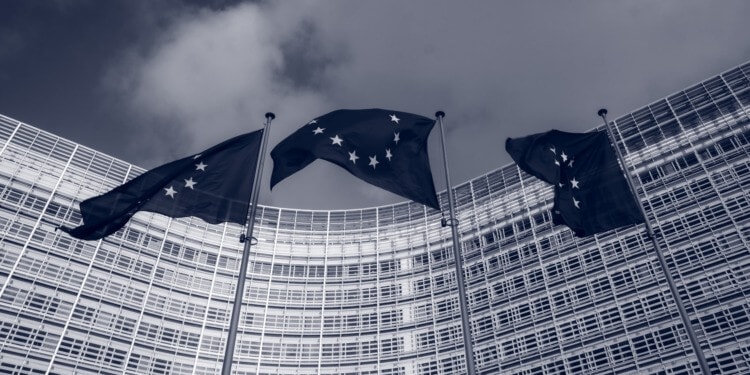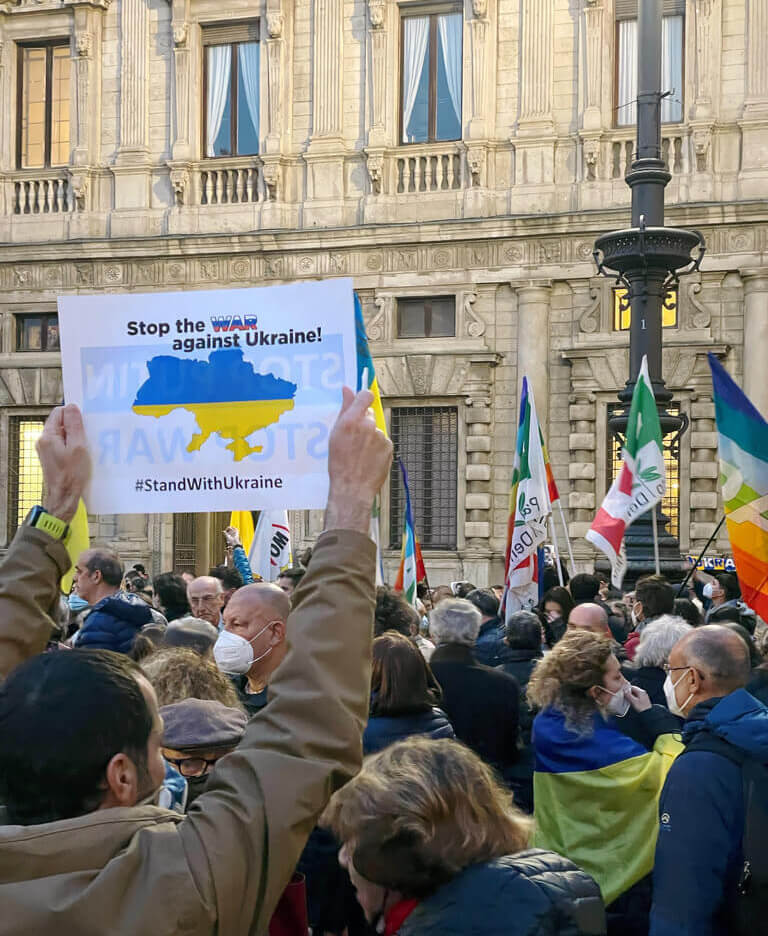The winds of war blowing today from Ukraine across Europe are likely to sweep away a statement of condemnation of unchecked abuse of migrants issued on Monday by the UN High Commissioner for Refugees, Filippo Grandi. This is a shame as his statement is important and should be heard: he pointed to “the increasing number of incidents of violence and serious human rights violations against refugees and migrants at various European borders, several of which have resulted in tragic loss of life.” The UN, particularly the UNHCR (the UN refugee agency), has repeatedly issued such statements expressing concern over the ongoing abuse, imploring the EU to investigate and take appropriate action.
Now, with an influx of refugees from Ukraine expected throughout Europe, the EU’s attitude towards migrants may be placed in the spotlight.
Increasing pushbacks and other violations at the European external borders — UNHCR’s news comments of today 👇🏻https://t.co/PliJrTypil via @refugees
— Filippo Grandi (@FilippoGrandi) February 21, 2022
Reports of violence at the EU’s borders have however largely fallen on deaf ears. As Grandi points out, “With few exceptions, European States have failed to investigate such reports, despite mounting, credible evidence.”
The evidence referred to by Grandi has been collected and documented not only by NGOs like Human Rights Watch and Amnesty International, but also the European Committee for the Prevention of Torture and Inhuman or Degrading Treatment or Punishment (CPT). The CPT is an EU agency, making the EUs continued refusal to take serious action against nations like Greece and Croatia even more frustrating.
Greece was explicitly mentioned by Grandi in his statement: “UNHCR [The UN Refugee Agency] has recorded almost 540 reported incidents of informal returns by Greece since the beginning of 2020.” The violations of international law however, go beyond informal returns, or push-backs as they are otherwise called, which are the forceful movement of migrants back across the border without considering their asylum claims.
In Greece and Croatia, the push-backs are often accompanied by a range of harrowing abuses including sexual violence, theft of clothing and other belongings, severe beatings, degradation and child endangerment. As Grandi makes clear, the “UNHCR has interviewed thousands of people across Europe who were pushed back and reported a disturbing pattern of threats, intimidation, violence and humiliation.”
Mounting evidence of abuse by Greece and Croatia has been documented and reported by NGOs, EU and UN agencies and media outlets. How long will it be ignored?
The report follows the discovery earlier this month, of the bodies of 19 migrants, frozen to death, who appeared to have clothing and shoes stolen from them. The migrants were found by Turkey, who accused Greece of stripping the migrants of clothing before forcing them out to sea in treacherous conditions on a flimsy vessel. The UN Refugee Agency’s statement makes references to such occurrences on EU borders: “At sea, people report being left adrift in life rafts or sometimes even forced directly into the water, showing a callous lack of regard for human life.”
Following the discovery, Impakter reviewed previous reports from Human Rights Watch, Amnesty and the CPT which provided evidence for Turkey’s allegations, and the behaviour described by the UNHCR. On the issue of clothing being taken from migrants, often accompanied by reports of sexual harassment, Amnesty in 2021 said they heard accounts of “men being forced to be naked to be searched, often in the presence of others including women and children.” They also reported that “In one case men were not only forced to undress but were not given their clothes back and were made to cross in their underwear.”
A Human Rights Watch (HRW) report published in March 2020 contained similar findings. The report bluntly declares that Greek security forces “have detained, assaulted, sexually assaulted, robbed, and stripped asylum seekers and migrants, then forced them back to Turkey.” HRW stated that most of interviewees had reported that Greek border enforcement had “stripped them down to their underwear, including some women, and forced them across the Evros river back to Turkey.”
19 #migrants found frozen to death between #Greece and #Turkey, strengthens reports of Greece’s systematic abuse of #asylumseekers, including theft of clothing
The #EU must not ignore mounting evidence of Greece's appalling actions
Read more ⬇️https://t.co/9MDRR96vOC
— impakterdotcom (@impakterdotcom) February 7, 2022
Further evidencing the UN Refugee Agency’s claims, late last year, as covered in detail previously by impakter, a collaborative investigation from Lighthouse Reports, involving contributions from various news outlets, confirmed the existence of a “shadow army,” bolstered by EU funds. This “army” consisted of masked security forces from Croatia and Greece, engaged in a range of abuses.
These include pushbacks and violent beating of migrants with truncheons “from the forests of the Western Balkans to the Aegean Sea.” The investigation managed to film Greek border security forcing migrants back onto boats without life vests, disabling the motors and pushing them back out to sea, as described by Turkish officials.
Related articles: Evidence of Abuse by Greece: Migrants Found Frozen To Death | Systematic Physical Abuse of Migrants by Croatian Police | Europe: 2021’s Migration Stories End With Wall Building Frenzy
Evidence of people being “forced directly into the water” was also found in a CPT report released in December of 2021, investigating the Croatian police’s systematic abuse of migrants. The report contained accounts which detailed how migrants had been “forced to march through the forest to the border barefoot and being thrown into the Korana river which separates Croatia from BiH [Bosnia and Herzegovina] with their hands still zip-locked.” They had also been “pushed back into BiH wearing only their underwear and, in some cases, even naked.”
The need for better accountability mechanisms
Neither Greece nor Croatia’s government have accepted any accountability for the well-documented abuse, and the response from the rest of the EU has been weak. It is clear that better systems need to be established to monitor EU countries and hold them to account. As mentioned in the UN Refugee Agency’s statement, “Progress on preventing human rights violations at borders as well as the establishment of truly independent national monitoring mechanisms to ensure reporting and independent investigation of incidents are urgently needed.”
Clearly, leaving it to nations to set their own mechanisms is not enough however, as demonstrated by the complicity of the Greek and Croatian governments in the abuse. Croatia set up a farcical oversight mechanism for human rights abuses at the border, which has proven entirely ineffectual in addressing abuse at the border.
Greece, rather than prosecuting border enforcement for the brutality inflicted at the border, have spent their energy taking NGO workers to trial for trumped up charges.
Mary Lawlor, UN Special Rapporteur on the situation of human rights defenders, has suggested that a guilty verdict for Sarah Mardini and Seán Binder, “would set a dangerous precedent of making criminals of people who support the rights of migrants and refugees across Greece and the European Union.”
Such a precedent has already been set however, in Hungary, where the right-wing ethno-nationalist government lead by Viktor Orban passed the “Stop Soros” law, criminalising those who help migrants and refugees.
This year has seen the international rights of #AsylumSeekers abandoned across Europe as several EU member states pursue nationalist aims
The continent continues construction of border walls, amidst a culture of anti-immigrant sentiment
Read more ⬇️https://t.co/MlyTGGWGQv
— impakterdotcom (@impakterdotcom) December 26, 2021
The rights of immigrants across Europe continue to be undermined by government policy and legislation. In the UK the Nationality and Borders bill, proposed by the government, has been criticised for potentially criminalising those that rescue migrants at sea. It also makes it even harder for migrants to legally enter the country, despite the fact that an asylum application can only be filed from within the UK.
According to a report published by the Joint Committee on Human Rights (consisting of member of both legislative chambers in the UK), the bill “would also make it a criminal offence to facilitate illegal arrival into the UK, potentially criminalising those who rescue migrants from the Channel and bring them to the UK, once again in contravention of the right to life under Article 2 of the ECHR.”
Considering the developments described above, more weight can be attached to the sentiment expressed in the UNHCR report: “We fear these deplorable practices now risk becoming normalized, and policy based,” reinforcing “a harmful and unnecessary ‘fortress Europe’ narrative.”
The report also drew attention to the fact “The reality is that the majority of the world’s refugees are hosted by low- and middle-income countries with far fewer resources, often bordering countries of origin in crisis.” This seems to be an acknowledgement of the fact that attitudes towards migrants are often driven by ideological concerns rather than practical ones.
This makes sense, given the right-wing ideology of Greece’s ruling Greek New Democracy party, and also Croatia’s ruling party, the Croatian Democratic Union (HDZ). The UK government has long been accused of tailoring their policy towards migrants according to a culture war, which attempts to tie hostility towards immigration to British identity.
The situation is unlikely to change in the near-future as the Ukraine-Russia conflict descends into full war, with a looming new refugee crisis on the horizon: Polish authorities have called in the US army to help them plan for an incoming wave of refugees from Ukraine, perhaps as many as one million people if Russia invades the country. What needs to change is the politics of EU border countries in contravention of international law and that can only happen if voters vote according to their conscience, realizing that it is everyone’s most basic moral duty to come in aid of fellow humans in trouble.
Editor’s Note: The opinions expressed here by Impakter.com columnists are their own, not those of Impakter.com. — In the Featured Photo: Violence at EU borders has been criticised by the UNHCR. Featured Photo Christian Lue.









